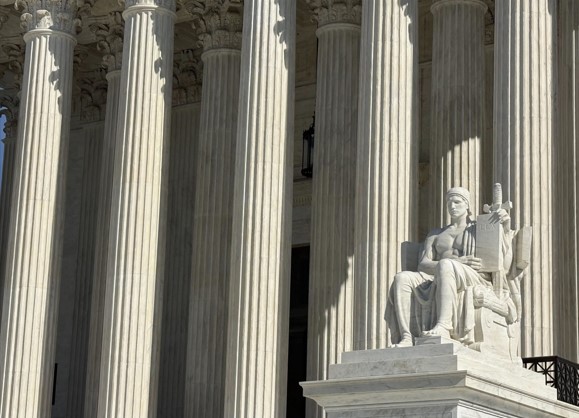Supreme Court Considers Louisiana’s Redistricting Challenge
on Mar 24, 2025
at 2:15 pm
The justices heard arguments in Louisiana v. Callais on Monday, the first case of their March session. (Katie Barlow)
Background of the Case
The Supreme Court is currently deliberating Louisiana’s redistricting plan, which is under scrutiny for potentially diluting the voting power of Black residents. This follows a recent federal court ruling that deemed the state’s congressional map unconstitutional for being a racial gerrymander, thereby challenging the preservation of majority-Black districts.
Current Legal Dispute
At the core of the dispute is the contention from state officials and advocating groups representing Black voters. They aim to reinstate a congressional map passed by the Louisiana legislature that successfully created a second majority-Black district. Despite these efforts, a federal court ruled the map constitutional issues associated with sorting voters predominantly by race.
Reactions from the Justices
During the oral arguments, several justices exhibited skepticism toward Louisiana’s justification for the new map, questioning the legal soundness of previous rulings that informed it. Their inquiries suggested that the crux of the case lies in whether the state can adequately justify its reliance on earlier court decisions while ensuring compliance with the Voting Rights Act.
The Path to the Supreme Court
Following the 2020 census, Louisiana recognized the necessity of redrawing its congressional districts. Despite a significant Black population, the 2022 legislated map only represented one majority-Black district. Consequently, a group of voters claimed this arrangement violated Section 2 of the Voting Rights Act, leading to an ordered redrawn map and the temporary halt of the original map.
Legal Arguments Presented
Louisiana’s solicitor general, Benjamin Aguinaga, defended the state’s position, expressing the complexities faced amidst competing interests in the redistricting process. The arguments put forth by both sides included discussions over the virtue of protecting incumbents versus adhering to legal mandates aimed at preventing racial discrimination in voting.
Key Judicial Concerns
- Historical Precedents: Justices questioned whether the legal basis of past decisions (i.e., the Robinson litigation) appropriately supported state actions in drawing the map.
- Racial Considerations: Concern arose regarding whether race was overly emphasized in district design — a critical issue highlighted by several Justices including Clarence Thomas and Elena Kagan.
- Political Implications: The shape and integrity of the newly proposed districts were scrutinized, particularly by Chief Justice John Roberts, addressing whether the districts serve political aspiration over equitable representation.
Potential Implications of the Ruling
The Supreme Court’s decision, anticipated by late June or early July, holds significant consequences not just for Louisiana but potentially for other states embroiled in similar conflicts over redistricting and voting rights compliance. With tightly controlled political dynamics at stake, this ruling could influence the broader landscape of congressional power and representation in the U.S.
For further developments, continue to follow the case as dotting legal decisions unfold with time.

